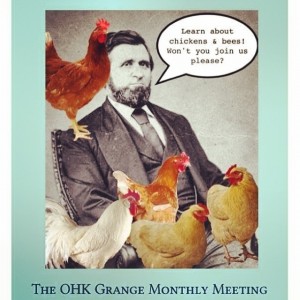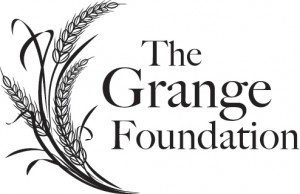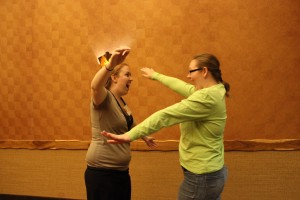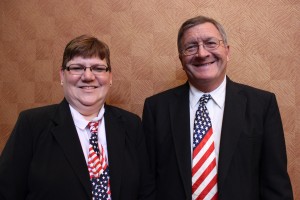Day 3: National Grange 148th Annual Convention
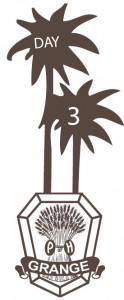 |
 |
National Master Addresses 148th Delegate Body |
| BY DEBBIE GEGARE DCI Communications Fellow | de*******@***oo.com
Luttrell’s internal and external addresses lasted about 35 minutes each. During that time, he told the group that improvements in agricultural science and technology are necessities for farmers who must assume these critical leadership roles thought out the world. “Science, not fear, nostalgia, or politics must be the cornerstone of the future,” he said related to the Grange’s continued support of genetic modification, new chemicals and pharmaceuticals. Also a hinderance to the agriculture community is overregulation such as the Waters of the U.S. and EPA regulations related to coal-fired power plants, according to Luttrell. “The Grange calls upon our elected officials at all levels to begin reducing the flood of government regulation before it drowns American entrepreneurs and business owners,” Luttrell said. Infringements on personal rights and liberties also drew empassioned discussion from Luttrell who said free speech, public displays of religion and the rights of citizens to bear arms shouldn’t be questioned thanks to our founding document, the Constitution. “We must not stray, as this grand document gives every American the right to follow their own dreams, seek their fortune and live their life by the principles of their individual faith,” Luttrell said. Later in the speech, Luttrell spoke of continuous threats to America and the many challenges of the modern world. When speaking of the re-evaluation of aid to foreign nations, he said, “We must ensure that we help the people, not empower and enrich the dictators and warlords. We must demonstrate and teach the power of liberty to enable their people, not tell them what to do.” Luttrell, for the past several years, has also focused heavily on the Grange’s interest in public education, especially that related to agriculture and STEM fields. “The Grange urges educators at the primary, secondary and undergraduate levels to include basic knowledge of agriculture in their curriculum,” Luttrell said. “Every American needs to understand that nature’s laws are constant and immutable. The lesson that there is no free lunch, but there are limitless opportunities, must be part of education in today’s world.” During his internal address, he talked about trademark issues and how we are dealing with the California situation and how these affect our budget. He urged every member to read the Declaration of Purposes and then reflect upon the principles that are enshrined in that document. Luttrell pointed out the every member should be proud of the rich history of the Grange as we are only two years away from the 150th Session of the National Grange to be held in the D.C. area in 2016. He challenged every member to not only celebrate our history, but face the challenges of today with an understanding of the legacy passed to us. “We must always look forward into the future while remembering the lessons of the past,” Luttrell said. |
Giving joy to children |
 BY LINDSAY SCHROEDER BY LINDSAY SCHROEDERDCI Communications Fellow | lr*********@*im.com This week, members of the National Grange attending the 148th Annual Grange Convention are collecting stuffed animals as a community service project. The toys will be donated to local children’s hospitals in Cleveland and Akron. “We have been doing a common service project for several year now,” 2014 Convention Co-Chair Ed Cochran said. “Across the nation every state has donated to this toy drive.” Located in the Atrium hallway where the session headquarters are, Ohio provided a cage for the animals to be put it. If you haven’t already placed your donation of toys, they will be on display all week. Bring your stuffed animals for this great event and make a youngsters stay more “bearable.” |
Lecturer’s programs that bring people through your Grange doors
|
| BY KARIE BLASINGAME DCI Communications Fellows | Kb***********@***il.com
Some Granges use technology to aid in getting community members into their halls by advertising their lecturer’s programs. In New Hampshire, State Grange Master Christopher Heath said, “Some Granges meet twice a month one is a business meeting and one is a program night. “They advertise programs in local papers, on Facebook and even on a local cable channels to get greater attendance at their programs,” Heath said. Lynette Schaeffer, Illinois State Grange Master, said her Granges go the more traditional route, bringing speakers in to address issues in the community that are of interest to members. When Turkey Hill Grange (IL) celebrated their 140th Anniversary, they asked William Shannon, curator of the St. Clair County Historical Society, to speak about Grange history at the event. “He was so involved in the topic, you knew that he had done his homework,” Schaeffer said. Turkey Hill Grange gave Shannon a year’s membership for being a speaker at their event. In Minnesota, the new Oliver Hudson Kelley Grange uses social media and more to spread the message of the Grange. OHK Grange partners with local historical societies, farmer’s markets, and employs their Facebook page and the distribution of press releases to both local and metro papers, television and radio stations to draw attention to their events. T.J. Malaskee, Master of OHK Grange, and 2014 John Trimble Legislative Youth, said that more traditional methods such as word of mouth and flyers are also important. OHK Grange takes the newsletter to a new level sending out “Kelleygrams” to members and sharing them on Facebook. Malaskee believes that an online presence is important, but to also make it valid by creating an event that asks people if they will attend or not. Malaskee shared that their Lecturer’s programs help “get the community acquainted with the fact that there is a Grange in the neighborhood.” Heath, Schaeffer, and Malaskee all agree, having relevant lecturer’s programs and advertising them to as many different media outlets as possible, is a way to gain members and keep Grange in the forefront of people’s thoughts. |
Knowledge tested at Grange History Luncheon
|
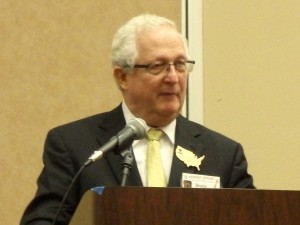 BY SUZY RAMM BY SUZY RAMMDCI Communications Fellow | gb*******@******ge.org Do you know which of the seven founders was not born in the United States? If you were at Tuesday’s luncheon of the 148th National Grange Session you would. National Master Ed Luttrell and High Priest of Demeter Bruce Croucher were the featured presenters discussing Grange history and trivia as well as a trip Croucher and his wife, Sharon, took to Greece in June. Bruce Croucher presented a program titled “The Temple of Demeter at Eleusis.” It included a photo of a model of what Greek authorities believe the temple looked like in approximately 1500 B.C. He went on to share pictures of the ruins as they currently appear. The luncheon wrapped up with some Grange trivia. At the request of Luttrell, Brothers Arthur Merrill, Leroy Watson and John Valentine provided some Grange trivia questions for the attendees to try and answer. A few in the audience correctly answered that it was first National Grange Master William Saunders, who was born in Scotland, not the United States. |
Region diverse in agriculture products |
| BY DEBBIE GEGARE DCI Communications Fellow | de*******@***oo.com “Agriculture in rural America needs someone supporting it,” began Bobby Moser, Vice President for Agriculture Administration and Dean, Emeritus for the Ohio State University as he addressed attendees at the Salute to Agriculture Breakfast Tuesday morning. He went on to talk to a crowd of 110 about the diversity of agriculture in Ohio and that the agriculture industry plays a large role in the economic welfare of the state. Many may not know that Ohio is the number one Swiss cheese manufacturers in the U.S. They are also home to a major soup company and yogurt brand. Ohio State University is a land grant university, established following the passage of the Morrill Act of 1862 in which federally controlled land was given to a state to sell in order to endow a public university to focus on the teaching of agriculture, engineering, and military science. Moser said agriculture is a global industry and The Ohio State University has been working on global issues in their research projects. He went on to talk about tomatoes currently being studied for cancer prevention, black raspberries being used to prevent gastrointestinal cancer and enriched gummy candies used to fight oral cancer. At the university, researchers are also looking at new technologies in agriculture and transforming agricultural products into renewable materials. He gave an example of making rubber tires out of dandelions. “What we’re trying to do is figure out how to make this world a better place to live in,” Moser said. |
The Grange Foundation: Working to build a stronger future |
| BY CHRISTOPHER R. SZKUTAK DCI Policy & Communications Fellow | cr******@***il.com
According to National Overseer Jimmy Gentry, the ideal candidate would be someone with foundation experience. “We are seeking resumes. We want someone who is interested in helping us to fundraise and develop new foundation programs,” Gentry said. New programming and greater funding will allow the foundation to have a greater impact for Granges and their communities. The Grange Foundation was formed in 1964 by then National Master Herschel Newsom and the Executive Committee of the National Grange. The Foundation is comprised of seven specific funds: Junior Grange, Kelley Farm, Trademark Protection, Deaf Awareness, Youth Leadership, Community & Leadership, and American Arts & Culture. These funds all revolve around the central mission of the Foundation which is “to engage in and encourage charitable, scientific, and education activities.” “The Foundation has tremendous potential to preserve our legacy and extend the influence of the National Grange,” Stephen Coye, Chairman of the Board said. However, this can only be done if members support the charitable organization through donations, said Coye, who also serves as the New York State Grange Master. Coye leads a board comprised of nine members: the National Master, National Overseer, the four members of the National Grange Executive Committee as well up to three additional members. These members do not need to be delegates to National Tax-deductible donations can be made to the foundation in general or to one of the specific fund programs. It is also possible to make a donation in honor of someone or to bequest money to the Foundation. For more information about the Grange Foundation or to find out more information about donating CLICK HERE. The Board is actively seeking two members to fill vacant spots who have experience with foundation. |
National Grange DVDs available for Lecturers program and other occasions |
| BY SUZY RAMM DCI Communications Fellow | gb*******@******ge.orgStuck for your next program idea?What about ordering a free DVD from the National Grange? “Dogs for the Deaf,” the “Kelly Farm,” or “Methamphetamine: A Menace to Rural America” are among the subjects local Granges can introduce members and the community to through DVDs. Other titles available are “The National Grange Building” and “The National Grange Building Rededication Ceremony: The Essentials,” both of which were created to celebrate the 50th anniversary of the National Grange building at 1616 H Street in Washington, D.C. The DVDs can be request from Samantha Johnson at the National Grange office 202-628-3507 x109. Johnson said the methamphetamine video, that talks about ways to spot possible meth labs – often found in rural communities Also available is the first Four Degrees instructional video. This DVD walks you through the key elements that make up each Degree. This DVD can be ordered from the Grange store for $5. Additionally, Johnson said there are “new [titles] every year or every other year” being produced, so keep your eyes open for additional subjects. |
Youth welcomed to session |
| By Charlene Espenshade National Youth Development Director | yo***@************ge.org
On Wednesday, youth and young adults from across the country will arrive at National Session to participate in fellowship with other Grangers, community service projects, leadership and membership development workshops. They will also have the opportunity to take in the sights of Sandusky and participate in youth contests. Some youth activity highlights are as follows: Youth officers open the Friday morning session. Officers will wear a special t-shirt honoring first National Grange Youth Director Wib Justi who passed away in July. The shirts, provided by Potomac Grange #1, DC, where Justi was a member, will be on sale starting Wednesday. The shirts feature the phrase Justi is most remembered for: “I’d be delighted.” A roundtable discussion will be held about Grange youth participation through the perspective of a subordinate Master with a large youth group, a state youth director, former state Master and the National Youth Ambassadors. At the Evening of Excellence, the new National Youth Ambassadors will be announced. On Saturday morning youth will be competing in the Grange parliamentary procedure and Grange Jeopardy contests. We encourage everyone to visit youth events and welcome these members throughout the week. |
Grange Youth partners with NJHA |
| BY DEBBIE GEGARE DCI Communications Fellow | de*******@***oo.com
He was involved with NJHA, fostering a partnership between the two organizations. Starting in 2015, a Grange division has been added to the NJHA Horticultural Identification and Judging Contest. In addition, Grange youth can participate in other NJHA national contests such as demonstrations, speeches, photography, performing “This will be a great way for our two youth organizations to collaborate on agriculture and horticulture education and to stimulate interest for both groups,” said Charlene Shupp Espenshade, National Grange Youth and Young Adult Director. By participating in these contests, youth not only have a chance to win prizes in NJHA but also earn Grange Youth seals. |
Honoring our veterans today and every day |
| BY KARIE BLASINGAME DCI Communications Fellow | Kb***********@***il.com
The Hall of the National Session is the same, and on Tuesday, upon reopening after lunch, delegates took a moment to honor those in the room and all other veterans who served their country through peacetime and war. National Chaplain, Barbara Borderieux led a prayer for all military personnel who did not make it home and those still in harm’s way. A few members shared their stories with me including, National Treasurer and Iowa State Grange Master Dwight Baldwin. Baldwin was drafted into the Army and stationed in Germany during Vietnam. He served in the medical corps and while he no longer uses those skills on a daily basis, skills that he developed while in the military like “leadership and common courtesy to others” Baldwin said he uses in his day to day life. While proud of his service, he said “I am probably more proud of my son Doug’s career in the military than my own.” National Grange Sales, Benefits, Programs and Membership Recognition Director Samantha Johnson said, “Many of our Granges honor our military throughout the year using the Potomac Grange #1 (DC) sponsored Patriot’s Program.” The Patriot’s Program is a series of DVD’s that you can use in your Grange to honor veterans and educate those about the sacrifices of those serving during WWII, Korea and to come those who served during Vietnam, the Gulf War and in the recent wars in Afghanistan and Iraq. Each DVD set includes information about the war and the war memorials in Washington D.C. The WWII DVD has been well received sending out over 800 DVDs. More than 200 Granges have requested the Korean War DVD this year. Along with the DVD there is a Certificate Program. If a Grange sends in the name of the person being honored, which war certificate they should receive, the honoring Grange and the town/municipality in which the Grange is located, and the name of the Master and Lecturer; Johnson will send out a certificate for the Grange to present. There will be a special certificate for veterans who were involved in the Pueblo Incident. In 2015 they will offer a Vietnam War DVD. CDs and certificates can be ordered from the National Grange by contacting Johnson at sj******@************ge.org or by phone at 202-628-3507 ext. 109. |
The new era of ‘membersip’ |
| BY MICHAEL MARTIN National Grange Leadership/Membership Director | mm*****@************ge.org “I can’t join the Grange; I’m not a farmer.” How many times have you heard this? Is it true? Was it ever true? The thing about stereotypes like having to be a farmer to join the Grange is that they grow out of grains of truth. And, in some places they may still hold firm even today. Not two months ago, I was facilitating a Grange Outreach for Active Leadership (G.O.A.L.) seminar and a participant shared their personal Grange story. In their experience, the nearby Grange voted against their becoming members because they were not actively farming. I would never have dreamed it possible. However, just because you are reading this at the National Grange convention, how many of you joined the Grange at a National Session? Oh, you most certainly received the Seventh Degree at a National Session. Is there any other place to receive it? But, no one applies for membership and becomes a Grange member at the national level. You join the Grange at home, in your local community Grange. Even in this day and age, the most likely place to join our Order is in your local community Grange. It is possible to apply for membership and not be voted into membership. However, I would definitely hope both you and the local Grange would have one another’s measure before your application reached the floor for a negative vote. In most communities today, local Granges have a more diverse membership than solely active farm families. Think about your own Subordinate Grange; who are your members and what are their positions in life? Are they farmers? Are they educators? Are they firefighters or law enforcers? Do they make and/or sell things? Are they homemakers? Are they students? Are they retired? The important thing in todays’ new era of Grange membership is where are the energies of your Grange focused? Is your Grange actively supporting the community, or is your Grange just interested in getting ahead for its own members? Active Granges today are looking outward from the Grange Hall. They are scanning the community seeking opportunities to make a positive difference in the life of their community. They are the life-blood of the community. In my training sessions, we talk about being a “Good” Grange member. What does it take to be a good Grange member in today’s society? Does one have to attend every regular meeting, assist with every fundraiser or other activity, and bring in new members every year to be considered a “Good” Granger? For some, that IS the definition of a “Good” Grange member and if you do less then you are not considered to be a “Good” Grange member. I suggest we broaden our sense of what constitutes a “Good” Grange member. If I pay my annual dues promptly and cheerfully each year, should I not be considered a “Good” Grange member? If I don’t attend many meetings, but help out at nearly every fundraiser and community activity am I not a “Good” Grange member? Many Granges need every member they currently have plus new members on a regular basis. We need to broaden our perspective of what constitutes a “Good” Grange member. Too often, a Grange votes to close its doors and surrender its charter, even though they have plenty of funds and numerous members on the rolls, all because they perceived they no longer had enough “Good” Grange members. Yes, we need actively participating members to keep the organization functioning, but please do not discount those members who may not be as devotedly active as you and I; they are still members to the best of their ability or desire and we should not discount them. We should actively seek to boost their involvement. Are they less active due to other pressures? Are they not active because they do not feel valued? Let us each look within our Grange and be open to all members in this new era of membership. |
Host Region Kicks Off Safari |
| BY DEBBIE GEGARE DCI Communications Fellow | de*******@***oo.com“G-R-A-N-G-E” was the cheer Ed Cochran, the Host Convention Coordinator, lead the attendees as he welcomed them to the Host Region Welcome Dinner held Monday night. The annual Host Banquet held by the Midwest Region of Ohio, Indiana, Illinois, Michigan, Wisconsin, Minnesota and Iowa used a football kickoff theme for the banquet. “We wanted to use the original theme selected by Edythe Walter as a way to honor her,” Past Ohio State Grange Master Gary Braumbaugh said. “Edythe passed away this summer, and this is a fitting way to carry out her endeavors. ”Monday’s banquet also welcomed The Classics, a talented four-man vocal group that pays tribute to the greatest music of the past 50 years. Based in Northeast Ohio, The Classics performed some 60’s Doo-Wop for the crowd including favorites as “Up on the Roof” and “Angel Eyes”. There was a lot of crowd participation as National Secretary Judy Sherrod was called on to have the song “Sixteen Candles” sung to her. Even Ohio State Master Bob White got into the act. After a fun evening of good food and entertainment, National Master Ed Lutrell ended with the message “teamwork is going to make this session successful.” |
How Does He Do It? Master Luttrell on Crafting his Master’s Address |
| BY CHRISTOPHER R. SZKUTAK DCI Policy & Communications Fellow | cr******@***il.com
I sat down with the Worthy Master as he was putting the finishing touches on his address and discussed how he goes about crafting the speech. According to Master Luttrell, the writing of his address is a long-term process that begins shortly after the previous years’ address is given. The speech comes together in a two-prong manner. First, he considers contemporary issues that specifically concern the issues that are important to the Grange, such as agriculture and education. Luttrell also contemplates issues that have been historically important to the Grange and that he feels we need to offer an opinion. The second aspect is the input that he receives from Grange members as he travels the country. Luttrell said Grangers frequently enlighten him to new concerns and local issues that are important to the Grange as a whole. The speech itself is drafted in parts. Luttrell takes each of the general sections he wishes to touch on and writes each topic individually. Then the speech is put together and read through to ensure that it flows well. Lastly, the speech is read by a group of trusted advisors and edits are made until almost right before it is given. Luttrell said he takes the responsibility of the address very seriously. He believes it is his “duty to be the architect of what I talk about. But it also needs to represent the organization and do justice and respect more than one point of view on an issue.” |
Agriculture in 2014: Agriculture economics and progress |
| BY CHRISTOPHER R. SZKUTAK DCI Policy & Communications Fellow | cr******@***il.com
On our journey to better understand agriculture today, it seems only right to look at the available data to explore what it can reveal to us. Our data will come directly from the 2012 USDA Agricultural Census. Before discussing the date, a little background of the census: the agricultural census is a survey of agriculture in the U.S. that is conducted every five years, specifically in years that end in two and seven. The most recent census was commissioned in 2012, with the results being released in 2014. In 2012, there were 2,109,303 farms in the United States. This represented a 4.3 percent decrease from 2007 when the number of farms was 2,204,792. Though the number of farms decreased, the average acreage increased 3.8 percent from, 418 to 434 acres. However, though average acreage increased, the number of acres of cropland decreased 7.9 percent. Another interesting number is 58.3, which is the average age of farmers in the United States, an increase from 57.1 in 2007. But that number does not tell the whole story, the census shows an increase of 2.2 percent in number of 25 to 34 year old farmers. So while the average age is increasing, the number of young people getting involved in farming is increasing as well. For a full report on the exact numbers on different commodities, farm size, etc., take a look at the full census available from USDA. The data is also broken down by state and county so you can learn more about your state and community. Commodity Production The USDA Offices of the Chief Economist publishes a monthly World Agricultural Supply and Demand Estimates that details the U.S. and World output and supply of commodities. The November issue of the Estimates had some interesting results. First, the corn crop in the United States is the highest yield and production ever recorded. Production is expected to reach an average of 173.4 bushels per acre 14.6 bushels above the 2013 average. These figures are directly related to the production of sorghum, which is also used to produce ethanol. Fewer bushels of sorghum being used for ethanol leads to greater use of corn. Second, grain production is down in the United States and will be lower than previous forecasts. This correlates directly to world events, with tension in the Middle East there are changing consumption habit, which drives the price of grain down. A third fact is the rising U.S. consumption of soybeans is leading to greater supply of soybeans available in the market. October rain delayed the harvesting of soybeans thus making it more difficult for farmers to keep up with demand, increasing the price. Farm Bill Many changes were made in the way the farmers interact with the government in this Farm Bill. One of the most significant was eliminates the practice of setting minimum prices for milk, cheese, and butter. This program was replaced with an insurance program, treating dairy products more like other commodities. Another change was the elimination of the direct payment program. This program paid farmers regardless of how much of a crop they planted instead greater funding was put into crop insurance. Crop insurance protects farmers while also making reducing the direct expenditures of the government. With a better understanding of different aspects of agricultural economics, tomorrow we will look at public understanding, lack there of, about agriculture and how public opinion shapes agriculture. |


